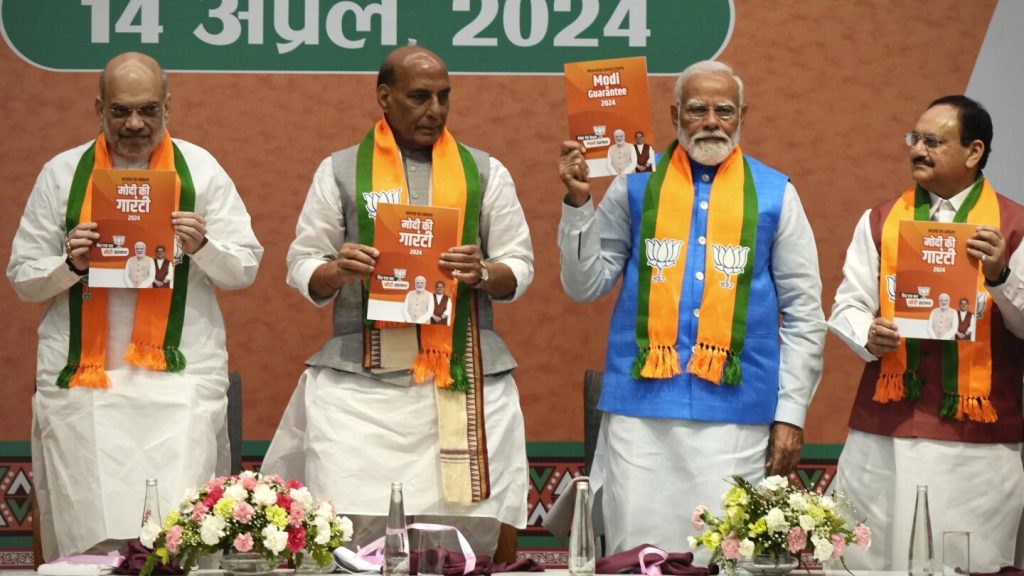Indian Prime Minister Narendra Modi has unveiled his party’s election strategy, vowing to boost social spending, develop infrastructure, and make India a global manufacturing hub. Ahead of the multi-phase general election, Modi hopes to secure a third five-year term in office. His promises include expanding social programs introduced during his party’s rule, providing free homes for the poor, healthcare, cooking gas, and free grain. The government has also been offering financial support to poor farmers. Modi stated that his government’s policies have lifted 250 million people out of poverty since he took office in 2014.
India, the world’s most populous country with over 1.4 billion people, will hold its parliamentary elections starting on April 19 and running until June 1, with results announced on June 4. While most polls predict a victory for Modi and the Bharatiya Janata Party (BJP), the opposition Congress Party argues that Modi has eroded democracy in India and favored the interests of the wealthy. Modi has been actively campaigning across the country, aiming to boost India’s economy to $5 trillion by 2027 from its current $3.7 trillion. He also aims to position India as a developed country by 2047, the 100th anniversary of independence from British colonialists.
Modi’s promises include developing India as a hub for pharmaceuticals, energy, semiconductors, and tourism industries. He also plans to modernize infrastructure such as railways, airways, and waterways, while increasing job opportunities for young people and providing access to affordable loans for entrepreneurs. Despite his popularity in India where he is seen as a champion of the Hindu majority and has overseen significant economic growth, critics fear that another term for the BJP could threaten India’s status as a secular, democratic nation. Concerns have been raised about attacks by Hindu nationalists against minorities, particularly Muslims, and a shrinking space for dissent and free media during the BJP’s tenure.
As the election approaches, Modi has emphasized his government’s achievements in poverty reduction and economic growth, highlighting the importance of continuing on this path for the country’s prosperity. The BJP’s president, J.P. Nadda, mentioned that less than 1% of Indian people now live in extreme poverty, showcasing the party’s focus on welfare programs for the marginalized sections of society. With over 50 countries going to the polls in 2024, the Indian election is being closely watched both domestically and internationally, as the outcome is expected to have significant implications for the country’s future trajectory. Modi remains confident in his vision for India’s development and is seeking a renewed mandate to continue his policies and initiatives for the betterment of the nation.


